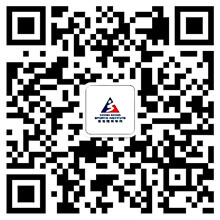Sport Nutrition Education No. III - Learn More About Anaemia
What is Anaemia ?
Anaemia is most often manifested by a deficiency in the quantity of haemoglobin, or the size or number of red blood cells. Sports anaemia is most commonly seen in athletes, but only iron deficiency anaemia is directly related to diet.
Sports Anaemia
It is characterised by a below normal haemoglobin level. Possible causes are as follows:
- plasma volume expansion,
- reduced haemoglobin synthesis,
- increased destruction of red blood cells (e.g. foot strike destroys red blood cells, especially in long distance running).
Other factors which increase the risk of sports anaemia include sudden increase in training volume or intensity, especially at the start of an intensive program. A diet low in iron aggravates the condition, but short term sports anaemia is an early adaptation to intense training and is not necessarily diet related.
Endurance athletes are susceptible to having a below normal haemoglobin level which may be due to an increase in plasma volume and does not always indicate the presence of anaemia.
Treatment depends on the cause and may include:
- diet modification to match increased training
- iron supplementation
- modification of training intensity upon discussion with coach
Iron Deficiency Anaemia
The following conditions are present in individuals with this disease :
- a below normal serum haemoglobin level
- the average size of red blood cells are smaller than normal
- blood with a lighter red colour than normal
- the total haemoglobin concentration in red blood cells are fewer than normal
In addition, the following conditions may also be present :
- a below normal serum ferritin
- an increase in red cell protoporphyrin (RBCP)
- a decrease in percent transferrin saturation
Causes of Iron Deficiency Anaemia
- depleted iron stores
- increased losses of iron (e.g. in urine, sweat, internal bleeding, injury, etc.)
Symptoms of Anaemia
Fatigue, paleness, increase incidence and duration of infection, mood changes, diminished appetite and decreased aerobic capacity.
Haemoglobin carries oxygen in the blood to muscles and other cells. Therefore, anaemia can affect sports performance, especially in athletes who engage in endurance events.
Sources of Dietary Iron
| Haem iron | - | highly absorbable |
| - | found in meat, seafood, poultry | |
| Non-haem iron | - | less absorbable than haem iron |
| - | found in cereal, beans, leafy vegetables and eggs |
Major Sources of Dietary Iron
| Breads and Cereals | Breakfast cereals, pasta, bread and baked goods which are made with iron fortified flour e.g. biscuits, pancakes etc. |
| Fruits and Vegetables | Broccoli, spinach, pak choy, Chinese kale, dried fruits like raisins, prunes |
| Meats, Beans and Bean Products | Red meat, liver, poultry, fish, oyster, clam, scallop, egg yolk, soybeans, tofu, kidney beans, lentils |
| Milk and Dairy Products | Iron fortified milk powder e.g. Carnation, Ensure, Sustacal, Enercal |
Percentage of Iron in Food Absorbed by the Body
| Food | Percentage of Iron Absorption |
| meat/seafood | 10 - 20 % |
| eggs | 1 - 3 % |
| rice | 1 - 2 % |
How to Increase Iron Intake and Absorption?
- Increase iron content of food by cooking with iron cookware, e.g. an iron wok.
- Limit use of foods containing inhibitors of iron absorption, e.g. tea, coffee, excessive dietary fibre, (e.g. from fibre supplements).
- Increase the use of foods containing enhancers of iron absorption, e.g. vitamin C, food from animal sources.
Excessive Amounts of Iron May Have Detrimental Effects
Excessive iron intake is usually caused by taking supplements and not from food sources. Iron intake of 100 mg or more a day can interfere with the absorption of other minerals such as copper, zinc, causing deficiencies of these nutrients. Iron in excess will be deposited in liver cells causing symptoms of cirrhosis. It may also deposit in joints, pancreas, heart and lungs.
Iron is an important component in haemoglobin. A diet which is adaquate in iron can prevent iron deficiency anaemia.
If you feel abnormally tired during training and get sick easily, inform your coach and seek help from the Sport Nutritionist and Sport Biochemist to see if you are suffering from anaemia.
For more information, please contact:
Sport Nutrition Unit
Telephone: (852) 2681 6277
Sport Biochemistry Unit
Telephone: (852) 2681 6139
 ID: hksportsinstitute
ID: hksportsinstitute

